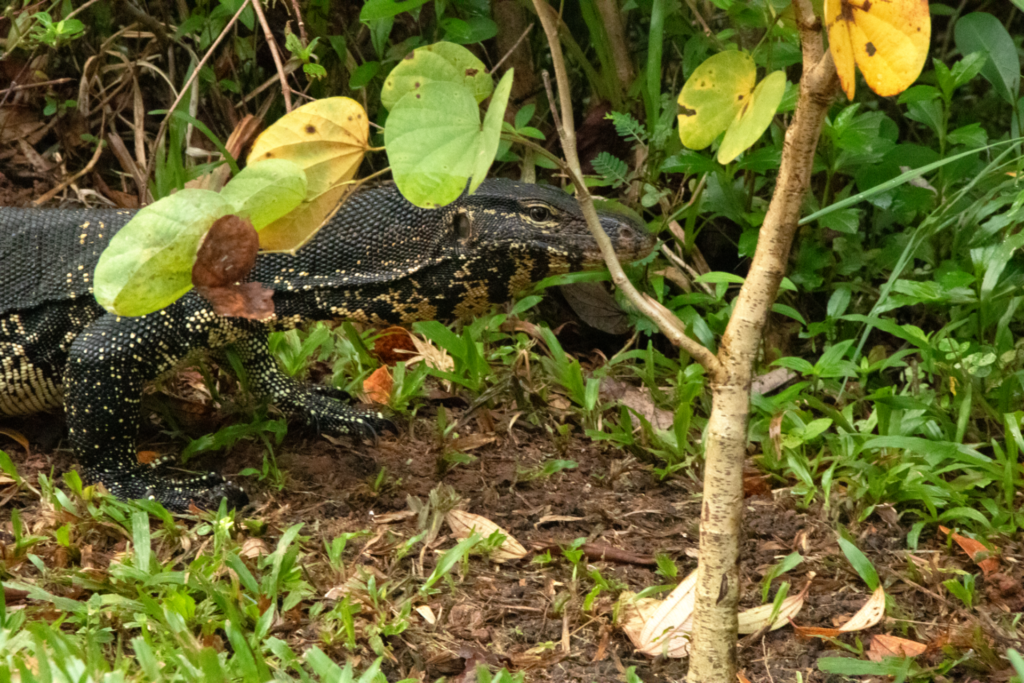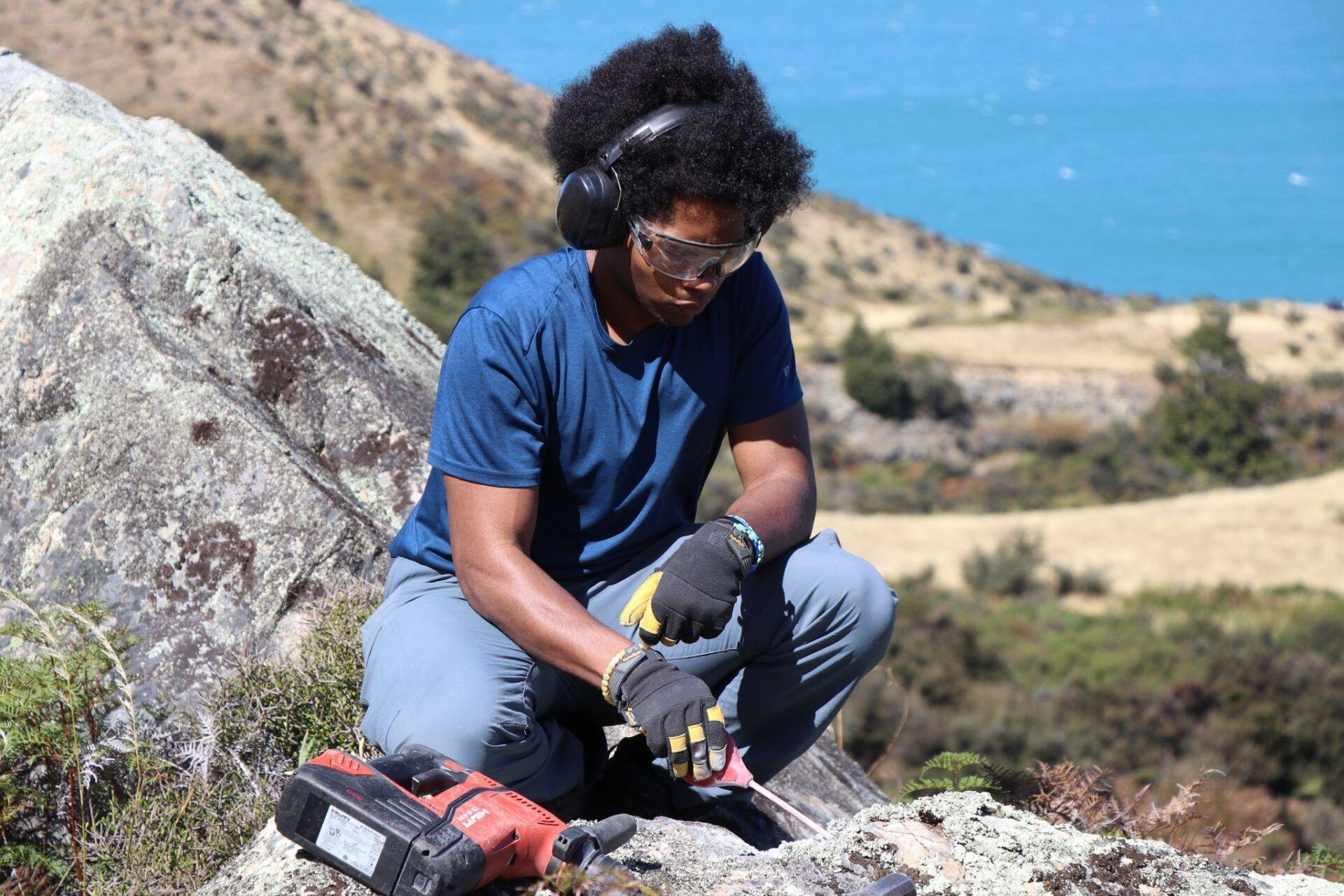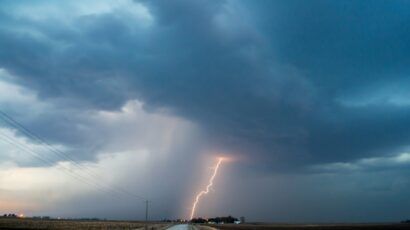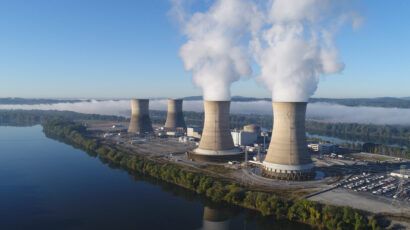Seven noteworthy stories about potential progress on climate change in 2024
By Jessica McKenzie | December 26, 2024
 Wildlife like the water monitor lizard have made a home in Sri Lanka's new urban wetland parks. (Photo by Tristan Bove)
Wildlife like the water monitor lizard have made a home in Sri Lanka's new urban wetland parks. (Photo by Tristan Bove)
Although there are still a few more days to go before the end of the year, the writing was on the wall in November: 2024 will likely be the hottest year on record, with global mean surface air temperatures more than 1.5 degrees Celsius warmer than the pre-industrial average. Global greenhouse gas emissions are also projected to reach an all-time high of 41.6 billion metric tons, a billion more than last year, as a result of continued fossil fuel emissions and deforestation. These are depressing, if not unexpected, milestones.
As I look back on the climate stories that the Bulletin of the Atomic Scientists published in 2024, what stands out most is our coverage of solutions—from promising nature-based adaptation and mitigation efforts to dangerous, techno-optimist interventions in the Earth’s climate. Limiting and responding to the climate crisis will be a continual challenge for current and future generations, but—as I must constantly remind myself—progress is possible.
The underwater Amazon by Paul Tullis
Kelp forests cover up to 7 million square kilometers of the ocean floor. In addition to providing habitat for a wide variety of marine animals (and a lot of economic value for the people who depend upon those animals for their livelihoods), kelp forests are also carbon-sequestering powerhouses, capable of absorbing up to five percent of global car emissions annually. But like other ecosystems, on land and in the oceans, kelp forests are under threat from a variety of stressors, like ocean warming, ocean acidification, and environmental degradation. The race is on to better understand the full extent and benefits of kelp forests—and to prevent their decline and disappearance before it is too late.

At the other (and potentially dangerous) end of the solutions spectrum is this story, about the new Climate Systems Engineering program at the University of Chicago, which aims to be one of the leading research institutions for solar geoengineering and other interventions in the Earth’s climate system. Solar geoengineering is a risky, stop-gap climate solution because of the wide-ranging impacts it could have, from changing weather patterns to reducing agricultural yields. It could cool the Earth, but it wouldn’t address ocean acidification from the absorption of excess carbon in the atmosphere. And once started, if geoengineering were ever stopped, the termination shock as warming was unmasked could be more catastrophic than what the world is experiencing now. How the University of Chicago came to start this program, without significant input from climate or atmospheric scientists, is an interesting question. Hint: Could it have something to do with the interest of deep-pocketed philanthropists and investors, like Bill Gates, in solar geoengineering and other technological solutions to the climate crisis?
One of the biggest challenges in decarbonizing global transportation is long-haul travel. Electric vehicles and batteries are great solutions for shorter distances, but simply aren’t practical for cross-country or international trips—via plane, for example. E-fuels made from waste carbon emissions are one promising solution for reducing overall emissions from transportation. Instead of extracting virgin fossil fuels, e-fuel producers can take waste carbon dioxide—from a factory, for example—and, using renewable energy from wind or solar, transform it with a catalyst into high-density fuel. It may not be completely emissions free, but if the incentives are there to produce e-fuels with renewable energy, it would be far superior to burning virgin fossil fuels.
Once used as trash dumps, Sri Lanka’s wetlands are remade as flood-buffering parks by Tristan Bove
With flooding and sea level rise, erm, on the rise around the globe, cities need to figure out how to absorb and manage excess water. Colombo, the capital of Sri Lanka, is leading by example. The wetlands and waterways in the city were once feared and treated like trash dumps or drained to make way for new construction, but the city has since changed its tune. Now, those wetlands are being reclaimed and redesigned as parks, providing valuable access to nature for city residents, increasing and improving wildlife habitat, and helping to absorb excess rainfall and limit damage from floods.
Rome was called Regina Aquarum, the “queen of the waters,” in antiquity, but regional climate changes and water mismanagement are threatening to dethrone the city from that lofty perch. Failing to improve water management threatens Italy’s wildlife and ecosystems, and the lives of Rome’s residents, especially the poorest and most vulnerable.

The mechanism that causes ice ages has been long debated by scientists, but new data suggests that the last global ice age may have been triggered by a change in the westerly winds in the Southern Hemisphere, the strongest wind system on Earth. These winds impact the heat exchange between the ocean and the atmosphere, and the theory is that a shift towards the equator cools the Earth, while a shift towards the South Pole warms the Earth. Why does that matter now? Because human-caused warming could be accelerating the shift of the westerlies towards the South Pole, amplifying warming effects and possibly creating a “superinterglacial mode.”
Hurricane Helene isn’t an outlier. It’s a harbinger of the future. by John Morales
One of the most shocking natural disasters this year in the United States was Hurricane Helene, which unleashed a massive amount of damage far inland from its Florida landfall. Yancey County, northeast of Asheville, North Carolina, received nearly 31 inches of rain. The resulting flooding and landslides were catastrophic, washing away homes, roads, and bridges and in some cases demolishing entire towns and neighborhoods. Months after the storm, many rural communities still lacked access to clean drinking water. John Morales’ words of warning, and of resolve, have stuck with me: “No one can hide from the truth. Extreme weather events, including hurricanes, are becoming more extreme. I must communicate the growing threats from the climate crisis come hell or high water—pun intended.”
Together, we make the world safer.
The Bulletin elevates expert voices above the noise. But as an independent nonprofit organization, our operations depend on the support of readers like you. Help us continue to deliver quality journalism that holds leaders accountable. Your support of our work at any level is important. In return, we promise our coverage will be understandable, influential, vigilant, solution-oriented, and fair-minded. Together we can make a difference.
Keywords: alternative energy, climate adaptation, climate mitigation, climate science, drought, extreme weather, geoengineering, oceans
Topics: Climate Change















